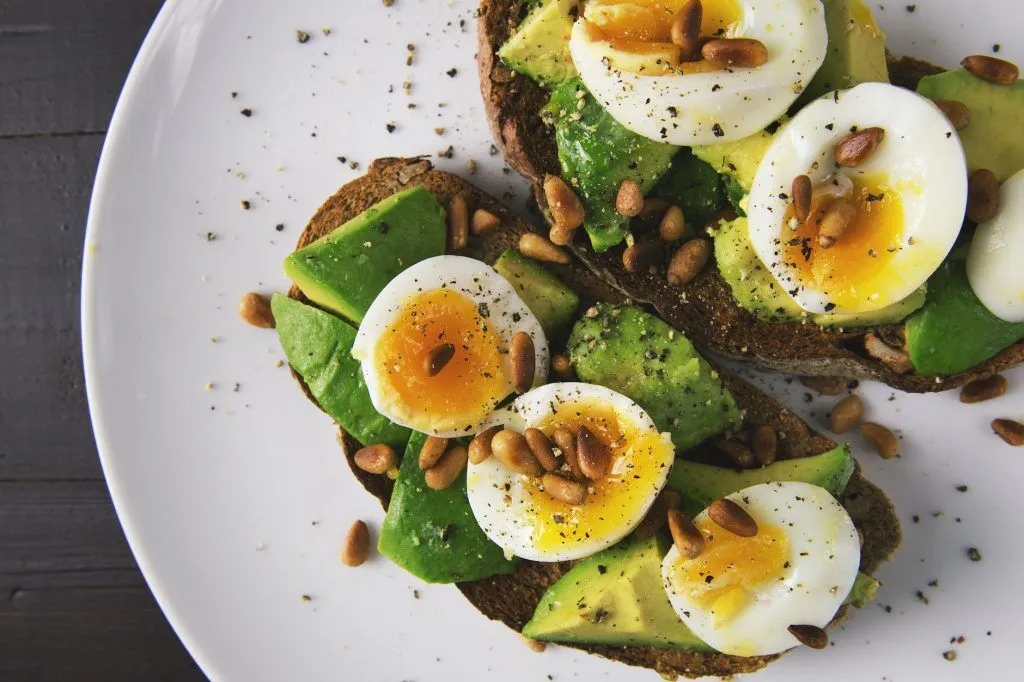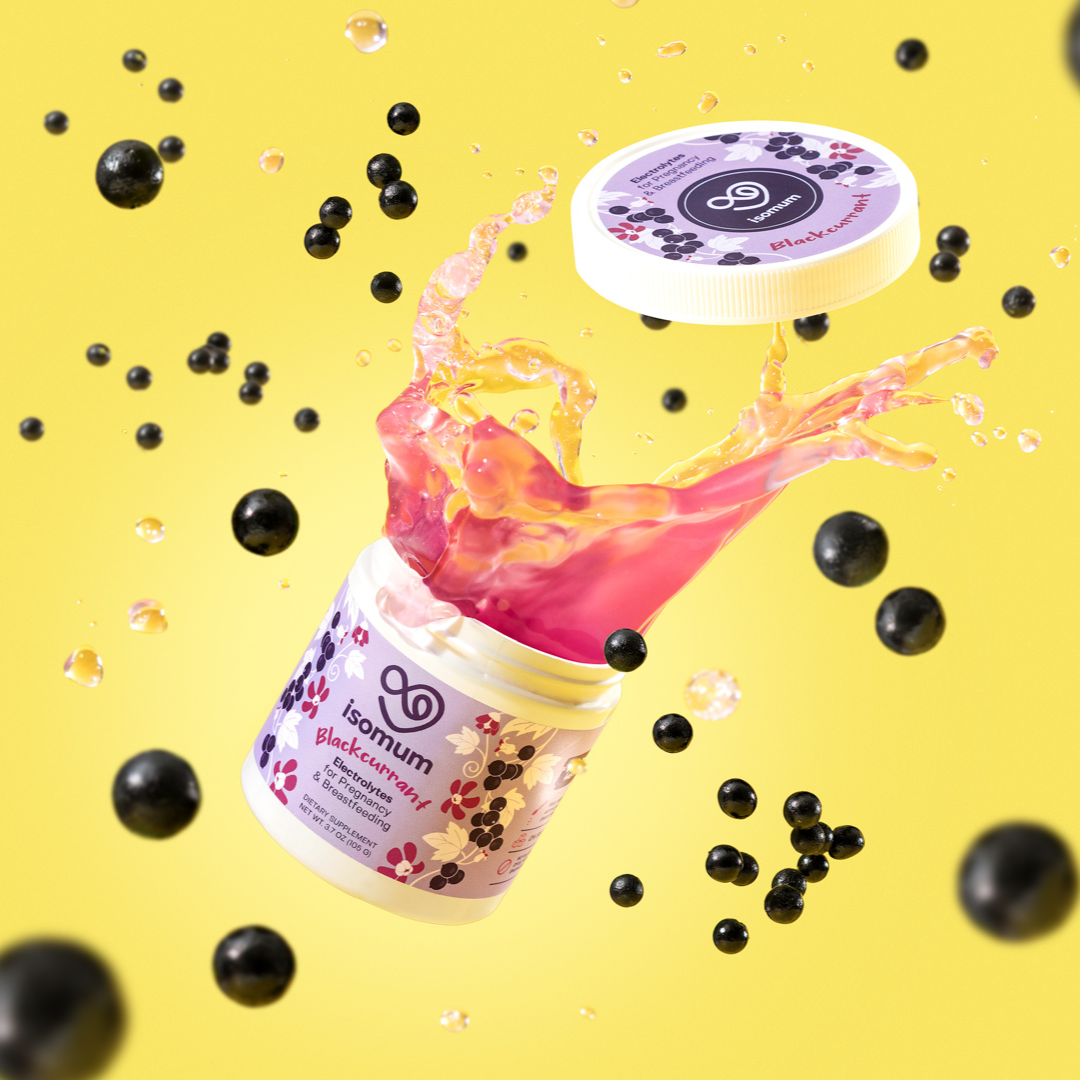Isomum’s Important Role in Making Sure you Stay Healthy
Embarking on the journey of motherhood brings a realm of nutritional needs into the spotlight. Ensuring a balanced diet and maintaining an adequate balance of electrolytes is fundamental for the health and wellbeing of both the mother and the growing fetus. This guide sheds light on the essence of nutrition and the unseen but vital role of electrolytes during pregnancy.
Eating a balanced diet is crucial during pregnancy – keeping you healthy but it’s also a vital role in your baby’s growth and development. 🥑
Lets get started on making sure your healthy eating guide is underway:
Understanding the Nutritional Needs During Pregnancy
A balanced diet during pregnancy is not just about eating double. It’s about nourishing both lives with a rainbow of nutrients necessary for growth, energy, and overall health. A balanced blend of macronutrients and micronutrients is pivotal for the developing fetus and to keep the mother in prime health.
- Macronutrients: Carbohydrates, proteins, and fats are the body’s primary energy source. They are crucial for the growth and development of the fetus and support the mother’s increased energy needs.
- Micronutrients: Vitamins and minerals play a vital role in various physiological functions. For instance, folate is essential for preventing neural tube defects, while calcium and magnesium support bone health.
- Diverse Diet: Incorporating a variety of foods such as whole grains, lean meats, fruits, vegetables, and low-fat dairy products helps in achieving a balanced diet. This array of foods ensures that both mother and baby receive the essential nutrients necessary for optimal health1.
| Aspect | Summary |
|---|---|
| Nutritional Needs | A balanced diet is crucial for supporting the health and development of both mother and fetus. It includes a variety of nutrients such as carbohydrates, proteins, fats, vitamins, and minerals. |
| Electrolytes | Essential for several physiological functions including nerve and muscle function, maintaining fluid balance, and supporting heart health. |
| Isotonic Drinks | Beneficial in replenishing electrolytes and hydrating the body, especially during pregnancy when the need for electrolytes is heightened. |
Hydration:

2. Hydration: Staying well-hydrated is crucial. Pregnant women should aim for about 10 cups (2.4 litres) of fluids a day.
3. Healthy weight gain: The amount of weight a woman should gain during pregnancy depends on her pre-pregnancy weight. It’s important to discuss this with a healthcare provider to know the appropriate range.
4. Foods to avoid: Certain foods carry an increased risk of foodborne illnesses and should be avoided during pregnancy. These include certain types of fish (high in mercury), raw or undercooked eggs or meats, unpasteurised dairy products, and high amounts of caffeine, alcohol or energy drinks!
5. Physical activity: Regular physical activity can help manage weight gain, improve mood, and reduce pregnancy complications like gestational diabetes and preeclampsia.
6. Managing common pregnancy symptoms: Many women experience symptoms like morning sickness, heartburn, fatigue, nausea or constipation. Dietary changes can often help manage these symptoms.
7. Special dietary considerations: Some women may have dietary restrictions due to health conditions (like gestational diabetes), religious or ethical beliefs, or personal preferences (like veganism). It’s important to discuss these with a healthcare provider to ensure nutritional needs are being met.
8. Prenatal vitamins: Even with a balanced diet, pregnant women are often advised to take prenatal vitamins to ensure they’re getting enough key nutrients, especially folic acid and iron.
Each woman and each pregnancy is unique. What works for one person might not work for another, and individual needs can change over time. Regular check-ins with a healthcare provider are an important part of ensuring a healthy pregnancy.
Weight Gain in a Healthy Way
Your Nutrient Increase Needs to Be Done Healthily
Gaining weight should be done right and going on a diet is not an option when you’re pregnant. Putting on too much or too little weight can lead to health problems.
The ideal weight is not something you should strictly adhere to as it varies greatly from one pregnancy to another. The weight gain would usually mean seeing something increased between 10KG and 12.5KG (22lb to 28lb).
A way you can Manage this is to have a meal plan!
Meal Planning and Preparation:
Having a plan can make it easier to eat a balanced diet, especially if you’re dealing with common pregnancy symptoms like fatigue or nausea. This could include tips for meal prep, easy and nutritious recipes, and strategies for dealing with cravings and food aversions.
Electrolytes: The Unseen Essentials
Electrolytes are minerals that carry an electric charge and are essential for several physiological functions. During pregnancy, the importance of electrolytes magnifies as they support various bodily functions crucial for the health of both mother and child.
- Key Electrolytes: Sodium, potassium, calcium, and magnesium are key electrolytes that support nerve signal transmission, muscle contractions, fluid balance, and heart function.
- Fluid Balance: Electrolytes help maintain the balance of fluids in and out of cells, tissues, and organs, which is crucial during pregnancy when the body’s fluid needs are heightened.
- Muscle Function: Adequate levels of electrolytes help in reducing muscle cramps and support the overall muscle function, promoting comfort during pregnancy.
The section integrates the core nutritional needs during pregnancy and segues into the introduction of electrolytes, setting the stage for a deeper dive into the role of isotonic drinks in replenishing electrolytes in the upcoming sections. It incorporates internal links to provide readers with additional resources and insights while keeping them engaged.
Replenishing Electrolytes: The Role of Isotonic Drinks
The body’s need for hydration and electrolytes surges during pregnancy, owing to increased blood volume and the demands of the growing fetus. Isotonic drinks emerge as a potential solution to meet these heightened needs, especially when it comes to replenishing lost electrolytes.
-
What Are Isotonic Drinks?
- Isotonic drinks are beverages that have been specifically designed for a purpose, with a balance of salt and other minerals the same as in the human body. They are known for their efficacy in replacing fluids and electrolytes quickly, making them a popular choice among athletes and individuals engaged in physical activities1.
-
Benefits of Isotonic Drinks During Pregnancy:
- Enhanced Hydration: Isotonic drinks provide a quick and efficient way to hydrate the body, which is crucial during pregnancy to support the increased blood volume and the needs of the fetus.
- Electrolyte Replenishment: They replenish vital electrolytes such as sodium, potassium, and magnesium, which support numerous physiological functions.
- Energy Boost: With the right balance of electrolytes, isotonic drinks can provide an energy boost, helping to combat fatigue common in pregnancy.
-
Choosing the Right Isotonic Drink:
- It’s essential to choose isotonic drinks that are formulated for pregnancy, free from excessive sugars and undesirable ingredients that could potentially harm the mother or the fetus.
Your Food Increase Needs to Be Done Healthily
- Dietary Supplements: In addition to prenatal vitamins, some women may need additional supplements. It’s important to discuss any supplements with a healthcare provider, as some can be the wrong decision during pregnancy.
- Breastfeeding Nutrition: If you plan to breastfeed, your nutritional needs will change after your baby is born. Preparing for these changes during pregnancy can help ensure a smoother transition.
- Postpartum Nutrition: After giving birth, it’s important to continue eating a balanced diet to support healing and recovery. This could include information on adjusting caloric intake and ensuring you’re getting a broad range of nutrients.
- Mindful Eating: Pregnancy can bring about changes in appetite and eating habits. Mindful eating strategies can help manage these changes and promote a positive relationship with food.
- Healthy Snacking: Pregnancy often brings about increased hunger and the need for more frequent meals. Having a list of healthy, easy-to-prepare snacks can be very helpful.
- Navigating Social and Cultural Expectations: Pregnancy often comes with unsolicited advice and pressure to eat or avoid certain foods. It can be helpful to discuss strategies for navigating these pressures while maintaining a balanced diet.
- Understanding Food Labels: Being able to accurately read and understand food labels can help pregnant women make healthier choices and avoid certain ingredients that may be harmful during pregnancy.
- Eating Disorders and Pregnancy: Pregnancy can be a difficult time for those with a history of eating disorders. It’s important to recognize the signs and seek help if necessary.
- Eating Out and Traveling: Strategies for maintaining a balanced diet while eating out at restaurants, traveling, or attending social events can be useful.
This should all be used as general advice to get your creative ideas for your pregnancy going. And maybe just using these as ideas to begin your healthy eating journey. Try to take on as much as you can as routine and you’ll be doing great!
Overcoming First Trimester Fatigue with Electrolytes
The first trimester often brings with it an unanticipated level of fatigue. The hormonal rollercoaster, alongside the body’s hard work in creating a new life, can leave one feeling drained. Electrolytes can be a beacon of relief during this time, offering a range of benefits to combat fatigue and support the body’s physiological needs2.
-
Combatting Fatigue:
- Electrolytes help in maintaining a proper fluid balance in the body, which in turn supports energy levels and helps combat fatigue.
-
Reducing Morning Sickness:
- The stabilization of the body’s pH levels by electrolytes can help in minimizing morning sickness, a common ailment during the first trimester.
-
Supporting Muscle Function:
- Electrolytes, particularly magnesium and potassium, ensure proper muscle contraction and relaxation, potentially reducing cramps and discomfort.
Incorporating Electrolytes in Your Pregnancy Diet
Maintaining a balanced electrolyte level is not solely about isotonic drinks; it encompasses a holistic approach towards a balanced diet enriched with electrolyte-rich foods and, if needed, supplements.
-
Electrolyte-Rich Foods:
- Incorporate foods rich in electrolytes such as bananas, sweet potatoes, spinach, and avocados in your diet.
-
Consulting Healthcare Providers:
- It’s advisable to consult with dieticians and professionals to tailor a dietary plan that meets individual needs and circumstances, ensuring both mother and baby receive the necessary nutrients and electrolytes for optimal health.
Gaining Too much Weight or Even too Little
Staying On Track!
Complications during pregnancy can be managed or increased from using the right diet. So it’s important that you stay healthy and active during pregnancy along with eating the right foods.
Conclusion
Navigating the nutritional maze during pregnancy might seem daunting, but with the right information and guidance, it’s entirely achievable. A balanced diet, enriched with essential electrolytes, paves the way for a healthy pregnancy journey for both the mother and the growing fetus. Engage with healthcare professionals to tailor a nutrition plan that caters to individual needs, ensuring a nourishing environment for the new life blossoming within.


